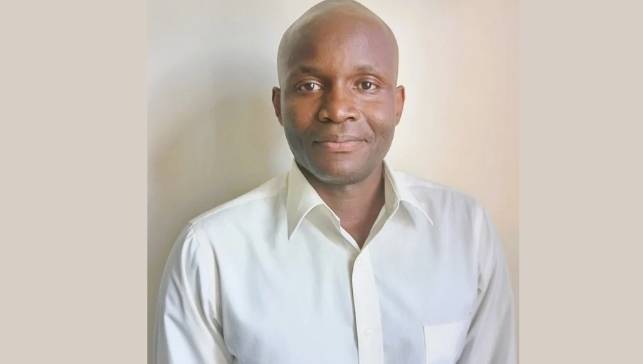Willis Nalwenge is the Investment Manager at the Orient Asset Managers
What is your role at Orient all about?
My current role at the Orient Asset Managers involves conducting investment reviews to drive returns while managing risk, product development, relationship management and I also oversee the company’s research and analysis which helps our clients in their investment journey.
What challenges have you faced in your current position?
One of the challenges I have faced in my current role is the need to maximize returns for our clients, especially in a challenging business environment.
Following the 2020 pandemic, we have faced a series of challenges such as drought, floods and global conflicts that have created tough market conditions that have trickled down to our Kenyan business environment. This sometimes limits our ability to get exemplary returns on client investments.
Were you employed and, or in another line of work before you got into your current position?
Yes, I have worked in different industries in the financial sector including banking and insurance, before moving on to the finance and investment industry where I have grown through the ranks to my current role.
What has been your biggest money mistake?
Over the years, I have made several money mistakes, which have made me learn better. First on the list was over-saving money. I would commit my finances to different saving platforms thus ending up with little to no cash for immediate use and this in turn would lead me into financial struggles and over-borrowing.
K’Owuor: My life changed when I quit ‘vibarua’ and went back to secondary school
Another money mistake that I made was liquidating my first pension. When I switched jobs, I was able to access nearly 70 per cent of my pension as the law on pension access had just been passed. However, I ended up mismanaging the cash. I have so far learnt that pension savings are meant for my old age.
Having been privileged to work in the finance and investment industry, I have had the opportunity to access favourable borrowing terms. However, the fear of risk made me keep away from strategic borrowing.
If I had made simple investment of borrowing from my employer at low rates and invested the money in secured investments like government securities which currently offer rates as high as 18 per cent, I would have made a net of 12 per cent.
What has been your greatest career moment so far?
My greatest career moment was moving from the insurance industry to the investment industry. This move propelled my career to where I am and gave me a great foundation for the future. I have grown both organically and in-organically.
I am yet to achieve all my career and personal goals and to achieve these goals I went back to school to study to gain more knowledge and advance my career.
Looking back, if you were to start all over again, what are some of the things you’d do differently?
I believe that we all have to grow to understand and learn from our mistakes. I now have a lot to teach those who are coming after me, especially about the aspect of accepting cheap financing from employers and Saccos and investing the funds in high-interest-yielding assets.
Which method do you use to save money? Is it effective?
I use three key methods that are determined by cost of finance, level of returns, and risk. The first is Sacco which helps me borrow cheap funding for investments.
Most Sacco’s lend at 12 per cent compared to banks that lend at 17 per cent and 19 per cent. My Sacco offers 12 per cent on my savings and 20 per cent on capital. This targets long-term investments.
Secondly, Money Market Funds (MMF) also known as unit trusts help me manage finances through platforms managed by professionals. This method helps me accumulate cash to be used to invest in more long-term and high-yielding investments at low risk. It mostly covers my short to mid-term investments.
Finally, I invest in government securities where I focus on long-term investments that offer guaranteed interest. Infrastructure bonds also give a good way to manage taxes as they have zero tax. By investing in bonds, I can calculate how much and when I will receive my return on investment.
This method of investing is very secure and helps fuel MMFs as interest received from treasury bills and treasury bonds can be used for short-term investments before moving them to the long holding. However, MMFs provide a good platform to invest, especially for those who need their cash fast while maintaining good returns and low risk.
Unlike before, now I refrained from saving in banks after realizing this method erodes the value of cash and offers low returns compared to Saccos, Unit Trusts, and Government Securities.
What is that heart advice that you have learned on life and money from other senior persons?
Take risks while you are still young. Learn and experience. When it comes to finances and investment, categorize your investment into short-term, mid-term, and long-term. Take advantage of pricing versus returns. If you can get cheap loans, accept them and invest the money in government securities which give better returns.
My other advice is to learn, study, and grow knowledge both career-wise and in general. Invest in government securities. The Central Bank of Kenya has made it even easier through technology and reduced the minimum investment amount to Sh. 50,000.
Finally, before investing, listen to professionals who are accredited and work for companies that are regulated by the specific regulatory bodies. This ensures that your investments are protected.









